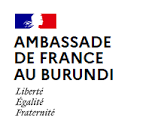“They Lived Happily Ever-after as Co-wives”
by Jean Claude Rivuzimana
Dear readers, here is the novel designed for you and it is very interesting, understandable and full of advices. It also carries a good lesson. As indicated in the title, you will discover more about how to manage feelings and emotions while in marriage and sticking to the goals fixed for your own needs. This is your time to enjoy reading, let’s goooooooo!!!!!!!!!!!!!!!
Mr. and Mrs. Macumi, farmers from Kayanza, simply captivated me. As soon as they sat in front of us, we were fascinated by their rustic background, their unsophisticated, charming gestures, and the guileless expressions on their faces.
“My wife Nzikwubaka has been complaining of pain in her knee for some time”, Mr. Macumi spoke on behalf of his wife, a situation we often encounter in older couples, especially those who come from upcountry.
The wife, as it turns out later, is articulate but is initially either shy or reticent, so her husband helps her out. However, if we address the woman directly and persistently, we eventually establish a direct channel with our patients.
In the case of Mrs. Macumi, this usual trend continued until we asked her, “How many children do you have?” She looked at her husband, silently beseeching him to take over again. “She has no children of her own”, Mr. Macumi explained. “She could not conceive, so I took a second wife and we now have five children”.
We searched for any resentment on Mrs. Macumi’s face at her husband’s disclosure, but saw none. After taking her history, conducting an examination and studying an X-ray, we reached a diagnosis of Osteo-arthritis in Mrs. Macumi’s knee. It is an age-related condition where after a certain age, the joints, especially the weight bearing bones like the knee and the hips, start hurting because of their long use.
We use our standard spie for such cases. “Osteo-arthritis is wear and tear of the joints”, the doctor said. Like the tyres of a car, which get worn out after running for over 25,000 kilometers, our knees, after carrying a weight of more than 70 kilos for more than 50 years, also buckle. Taking the simile further, the joints need retreading or replacement”.
I saw the couple absorbed in my metaphor. “But before we take these radical measures, we first try oiling and greasing”. We were now referring to injection of cortisone into these joints to see if we could avoid major surgery.
We did everything necessary and told the couple to report after six months so that we could see how much relief our treatment had given. As they left the office, I could see utter faith in us shining in their eyes. My curiosity was aroused about a man so happily married to one wife taking another, and how the first wife views somebody whom I would consider an intruder. I hope that at some point in the future, when Nzikwubaka will be more communicative, I will be able to satisfy my inquiring mind on a subject so alien to me.
The opportunity came sooner than I expected. Before the six months were up, Mrs. Macumi was admitted under our care with gall stones.
“How is your knee after injection?” I asked. This time, I went on a direct line between Mrs. Macumi and myself. “Big help”, she replied. “I have no pain and was planning to come back for greasing and oiling again when I developed severe pain in my tummy. The Doctor in Kayanza suspected gall stones and decided that I could not wait”.
I was very happy to note that Mrs. Macumi was now communicative. I had an ulterior motive and decided that after removing her gall-bladder, while she would be recuperating, I would have a chance to understand a custom so widely prevalent in Mrs. Macumi’s and other allied communities.
Luckily for me, there arose an opportunity to start the topic and study it further. It so happened that Mrs. Nzikwubaka’s co-wife arrived to be with her after she underwent the surgery. Mrs. Nzikwubaka introduced her to me: “This is Njetubane, my husband’s other wife. She is here to look after me”.
“Where is your husband?” I asked. He had accompanied Nzikwubaka when she was admitted and I knew that he was waiting outside the operating theatre while we operated on her.
“How did it go?” he asked when I momentarily popped my head out of the operating theatre door. “Fine”, I said. “Everything has gone well and I expect an uneventful recovery”. “Can I see the stone?” Mr. Macumi asked the standard question which patients and relatives ask after a surgeon has removed the gall bladder or kidney stones. “They are going to the ward with your first wife”, I said and went back to continue assisting the surgeon conducting other operations.
That evening when I went to see Mrs. Macumi and other post-op patients before I went home, I met Macumi again, holding the bottle carrying the dark purple oval stones. He said, “I didn’t realize that Nzikwubaka was growing tanzamites inside her belly. If I had known, I would have let them to grow to a larger size before asking a surgeon to remove them”.
He was obviously relieved at the happy outcome and this light-hearted comment was an expression of his relief. I did not see him again. When I asked why Mr. Macumi was no longer there, Nzikwubaka replied “My husband has gone back to the farm. This is our harvesting season and his presence is required there”.
Njetubane was youthful, carefree and bursting with vitality. Judging by her dress, shoes and hand-bag, I surmised that she was up with the fashion of the day. She was looking after Nzikwubaka as a younger sister would look after her elder, with deference, love and sympathy because of her recent surgery.
This happy relationship between two women sharing one man’s affection and attention sharpened my desire to find out more about it. So, the next day, when I found Nzikwubaka alone, I questioned her on the subject. “As you can gather, the whole concept is foreign to me”, I told her. “As the nurse who assisted you undergoing the operation, I want to know about your infertility, and as an author, I am keen to learn about how you live so harmoniously with your co-wife”. There was a grin on Nzikwubaka’s face as she briefed me on both topics. What follows is a version paraphrased by me without in any way affecting the core of her feelings.
For three years after my marriage, I longed to hold my own baby. I visited so many doctors and herbalists. They prescribed barks and roots of trees. I ate raw herbs and cooked herbs. I avoided salt and milk. Some herbs were as bitter as quinine and some made me sick, but I persisted. Nothing worked. Ultimately, we decided to consult a doctor who sent us to a specialist in Bujumbura. He examined Macumi and me, put us through various tests and told us the truth.
There was sadness on Nzikwubaka’s face as she continued with her saga. :
The lady specialist sat us together and said, “I am afraid Nzikwubaka cannot conceive because her womb has not grown to an adult size. In our language, we call it infantile uterus, a womb that remains the size of a thimble. Having gently prepared us for the whole truth, she announced, “Nzikwubaka will never be able to conceive”.
I could see tears glistening in Nzikwubaka’s eyes but she surprised me by what she said next.
I asked the specialist “Is Macumi alright? Can he sire a child?” She said yes and that was all what I wanted to know. I wanted Mr. Macumi to take another wife but he wouldn’t listen. I could see his face wilt when news came of his friends becoming fathers not once, but several times. He would laugh and say, “There were many boys who wanted to marry you but they couldn’t because your father had set the bride price too high. I saw you, fell for you and worked hard until I had saved as much money as your father wanted. I want some return on my investment”.
There was another lull in the conversation when Njetubane popped in to see that Nzikwubaka was alright. She brought a basket of fruit and sensing that we were busy in a confidential conversation, tactfully left us. Nzikwubaka picked up the thread
I wasn’t going to let Macumi go without any children. So, on my 40th birthday, I said to him, “My husband, don’t you think it would be wise for you to look for a companion for me? Also, someone who can bear children to carry on the family name? As you know, our farm is getting bigger and we need some help. I had already done my research, and as Macumi was still thinking, I said “What do you think about Mugenzi’s daughter, Njetubane? She is beautiful and hardworking and her family is very interested in our homestead. So try to win her love. Remember the Kirundi saying–the flowing waters of the river do not wait for a thirsty man”. After persistent badgering, Macumi took my advice and married Njetubane, and over the years, we were blessed with five children.
I have learnt something which no history book or literature in our indigenous culture could have taught me. Two thoughts whirled in my head:
First, Nzikwubaka’s yearning for children and love for her husband. Here was a remarkable woman, who had made a huge personal sacrifice by insisting that her husband take another wife so that they could have children, notwithstanding that they were not born by her.
Second, could it be that old traditions, derided now with new thinking, were adopted by our forefathers for reasons which might still be valid under exceptional circumstances?
I think Nzikwubaka thought wisely and held a true love for her husband. She didn’t want her husband to be misbehaving, especially sexually. In other words, she protected the whole family, including her own health.
authors and works
Clarisse KANEZAPrivat NINDORERA
Anaclet NDAYIKUNDA
Jean Claude RIVUZIMANA
Pierre NDAYISENGA
Published collection: Download
 Ambassade de france au Burundi
Ambassade de france au Burundi
 Université du Lac Tanganyika
Université du Lac Tanganyika
 Université de Ngozi
Université de Ngozi
 Université de Mwaro
Université de Mwaro
 Gusoma Edition
Gusoma Edition

